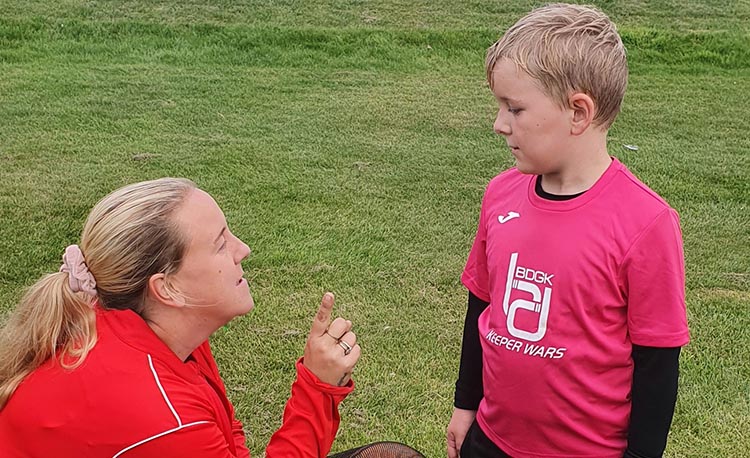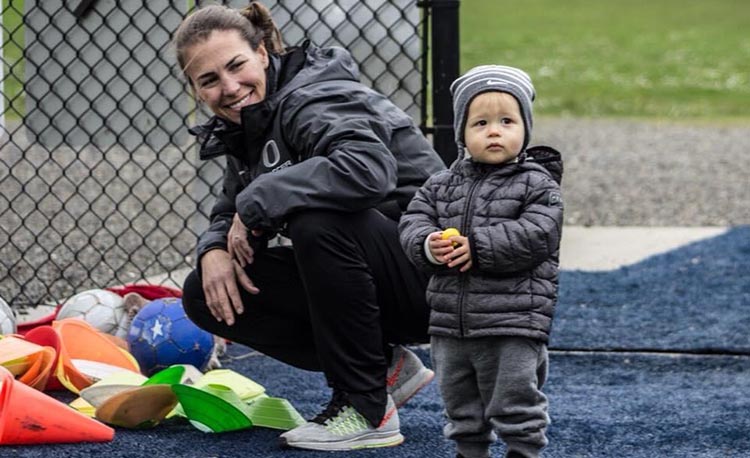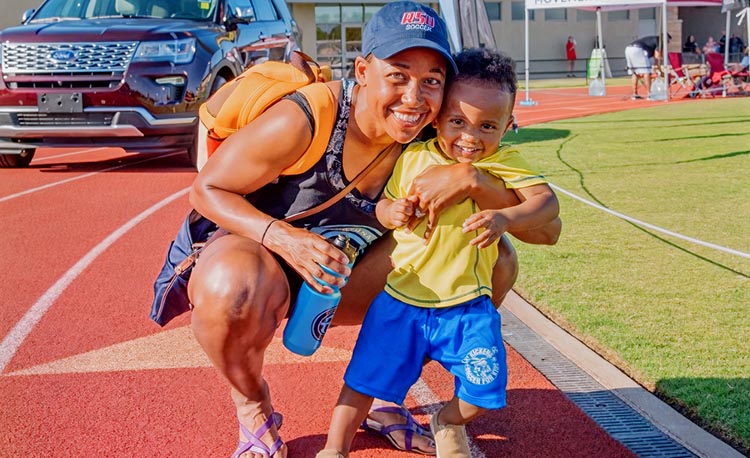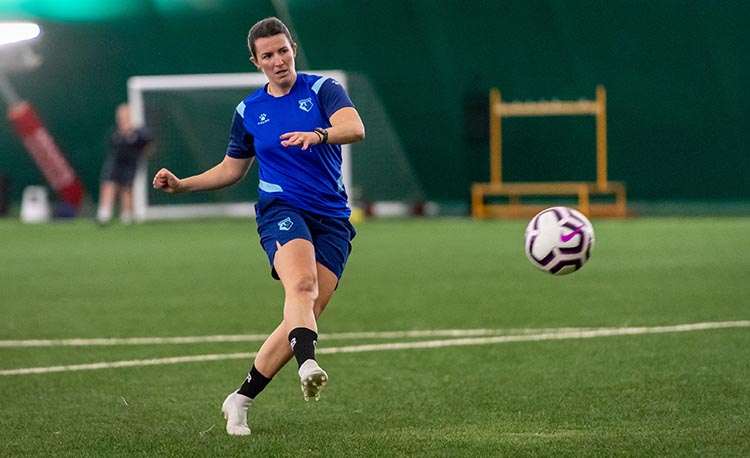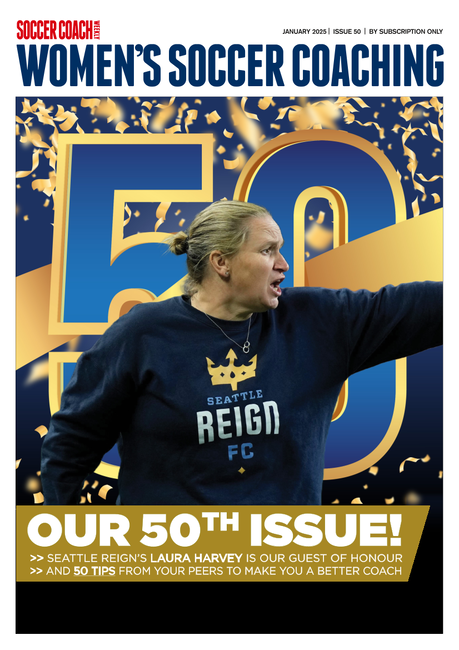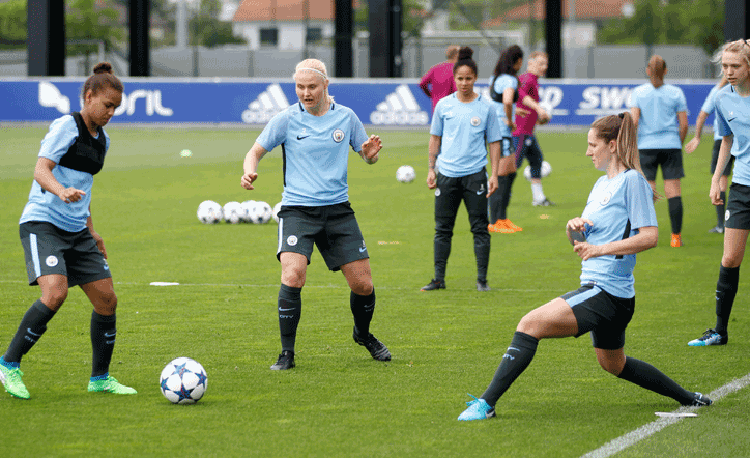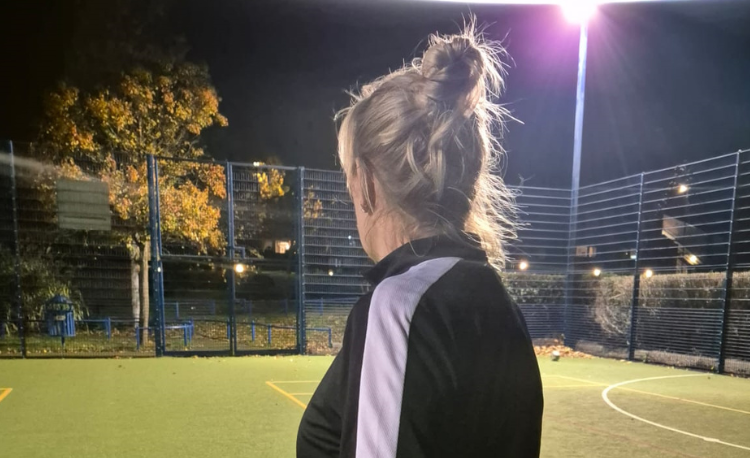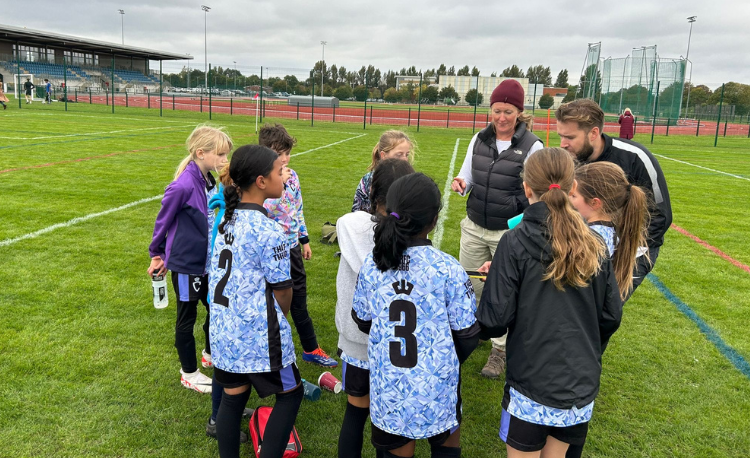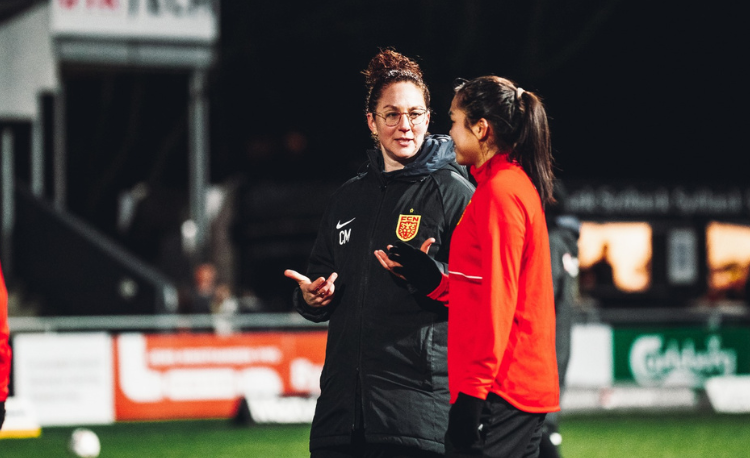You are viewing
1 of your 3 free articles
5 tips for coaching your own children
Volunteered to take charge of a team your child plays in? Gemma Bell gives some advice on how to keep the relationship strong when wearing two hats
Watch a local match on a weekend morning and you are likely to find a host of volunteers stood pitchside, supporting young players in the beautiful game.
Many of those will be parents - some will have played and some won’t. But whatever their prior experience, a few will be pitched in, or volunteer, to coach the team that includes their own child.
No matter how many courses you do, nothing prepares you for that - whether it is the car journey home after a tough result, or the moment you must sub your child because their head is gone from your disagreement with them over unwashed kit or messy room.
It is not my UEFA B that has taught me to manage both my children as a coach - it has been making mistakes and learning from them.
Here are some of my tips from my journey as a parent-coach....
01. LEAVE YOUR PARENT TITLE IN THE CAR
I have my children call me ’coach’ or Gem at training. Some parent-coaches find it hard to do, but I swear by it. It helps us leave home arguments where they belong and created two personas for me.
After we introduced this, my son found it easier to take my instructions as a coach and not as a critical parent. Although some of my son’s class all think my actual name is Coach Gem!
02. UNDERSTAND THEIR ’WHY’
Every child has a ‘Why?’ that justifies to themselves why they are turning up. As coaches, it is important we understand this of all of our players, but none more so than our own child.
If they play to improve, you can use that to justify when it’s hard for them. Tell them things such as: “I know you aren’t finding this easy, but think of how proud you will be of your development when you succeed”.
If you know you have had to offer them feedback that will help them develop, then remind them it is what they wanted, and you care about what is important to them.
If their ‘why’ is to have fun, then perhaps refrain from too much critical feedback. Ask them “What was fun about the session?”. The more you gauge what is fun, the more you can adapt sessions to support this.
03. USE YOUR ASSISTANT
If you have had a hard time in your parent-child relationship, let your assistant manage your child during the next session.
A good assistant will help in protecting your role as coach and parent, while allowing your child room to vent their frustration.
Lots of children see coaches as additional role models when shaping their view of the world, so allowing them to experience that level of support from your assistant will help them as a person, improving communication skills and social skills.
04. TAKE FIVE!
You may not have a chance every game, but where you can, hand over the reins to your assistant and give your child your full parent attention.
Appreciate their love for playing, their skill, development and simply see their game, their way. The same goes for training. Step back, watch and enjoy.
I often sit down or kneel so that my children know that’s when I am in parent mode.
05. THE DRIVE HOME
If your child has had a bad game, or something has happened that as a coach you would normally discuss with a player, try not to carry that on in the car.
Our children often feel the weight of anything negative that happens in matches or training. Sometimes, I have unknowingly come away disappointed at myself or how a session has gone and I will discuss it obsessively.
My son can feel like it is aimed at him and become overly critical of himself. Similarly, if he feels he has had a bad game, I have to switch from coach mode to mum mode as he just needs me to listen, reassure and be that person he can vent to.
Then, leave coach mode until the next session or game - unless your child talks to you first.
Related Files
Newsletter Sign Up
Newsletter Sign Up
Discover the simple way to become a more effective, more successful soccer coach
In a recent survey 89% of subscribers said Women's Soccer Coaching makes them more confident, 91% said Women's Soccer Coaching makes them a more effective coach and 93% said Women's Soccer Coaching makes them more inspired.
*includes 3 coaching manuals
Get Inspired
All the latest techniques and approaches
Women's Soccer Coaching offers proven and easy to use soccer drills, coaching sessions, practice plans, small-sided games, warm-ups, training tips and advice.
We've been at the cutting edge of soccer coaching since we launched Soccer Coach Weekly in 2007, creating resources for the grassroots youth coach, following best practice from around the world and insights from the professional game.
